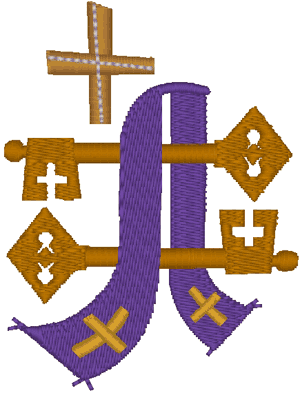"To bear witness to God the Father, follow the teachings of Jesus Christ,
and be guided by the Holy Spirit."
Connect with us on social media!
For home-bound individuals we
live-stream Mass on Sundays at
10:30 am.
Rev. Michael J. Goyette, Pastor
49 West North Street
Clayton, New Jersey 08312-1114
Main: (856) 881-9155 Fax: (856) 881-9166

The Sacrament of Reconciliation
"Whose sins you forgive are forgiven them,
and whose sins you retain are retained."
Jn 20:23
Often times, people make mistakes. It is an undeniable fact of human nature. Some mistakes are greater than others and some mistakes have a greater impact on those in one's own family as well as all those around them. The same can be said of sin. Some sins bear greater weight than others, but they impact our relationship with God, with individuals around us, and the Church nonetheless.
God, in His loving kindness, understands human nature and knows how to aid us in our struggle for holiness. That is why He sent His only Son to die for our sins. Through the merits of the Passion, Death, and Resurrection of Jesus Christ as well as the commission He gave to His Apostles, Christ instituted the Sacrament of Reconciliation ... also known as Penance or Confession, in order for the faithful to make amends for their sins, renew their relationship with God, and to resolve not to commit the same sins again. In Confession, the grace lost by sin is restored and our friendship with God is renewed and strengthened.
For some, the idea of pouring out the secrets from the deepest recesses of the soul may be a frightening and fearful thought, and for others the thought of one's personal sins may feel like a burden that cannot be lifted. However, this Sacrament was instituted by Christ to liberate those imprisoned by fear and to relieve the burden of sin from the shoulders of the sinner. As much as we desire to feel this forgiveness, it is Christ who waits for us and longs for us to come to Him in the Confessional, and through His priests, He gives us His gentleness, comfort, healing, and guidance as we take that first step in rebuilding our lives.

Confession is a Place of Victory
Bishop Barron on the iPhone App & Confession
What is Confession and why do I need it?
Sacraments 101: Penance - Why we confess


